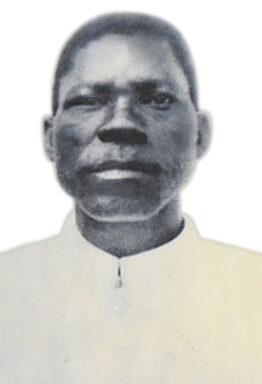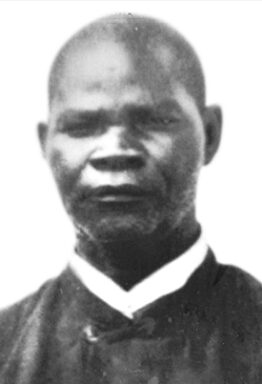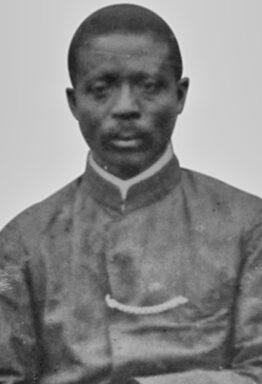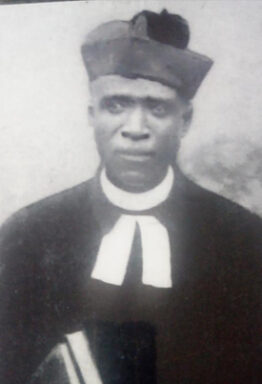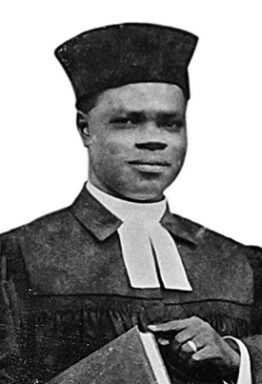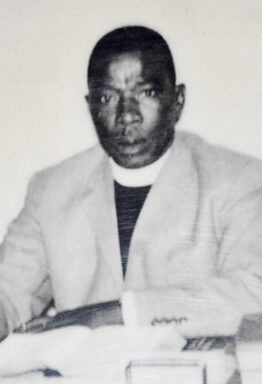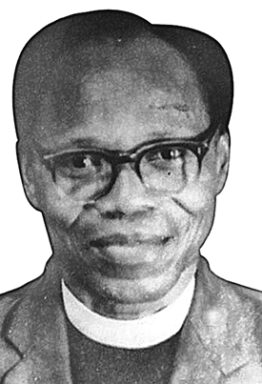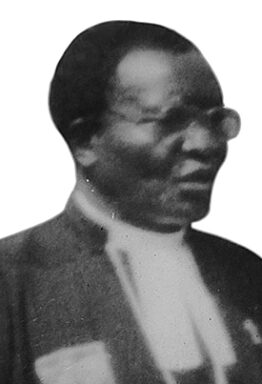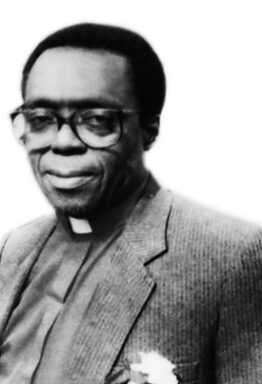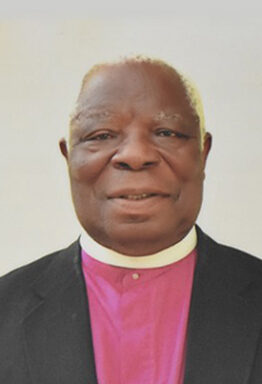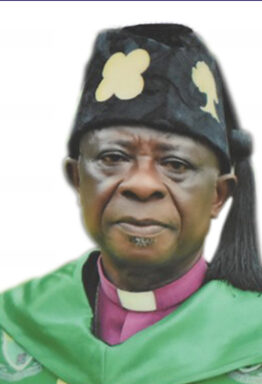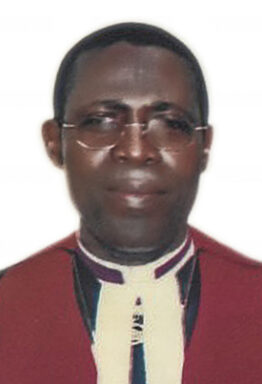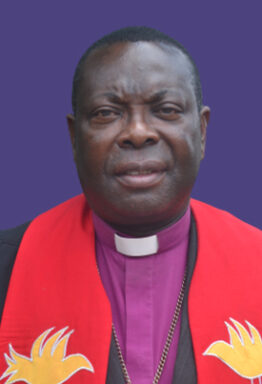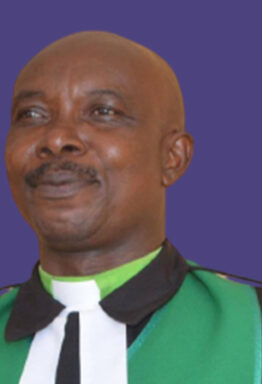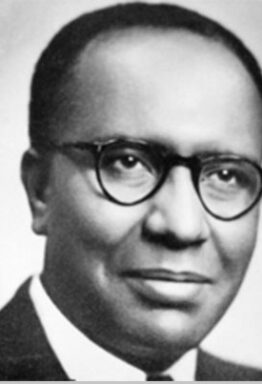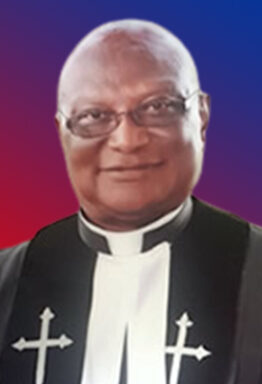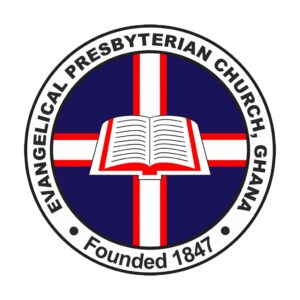
The EPCG Standardized Logo
The Evangelical Presbyterian Church, Ghana, is a product of the missionary efforts of the North German Missionary Society (Bremen Mission), founded on 9th April 1836. In 1843 and 1846 the Society sent its first and second missionaries to East India. In 1850, the East Indian Mission was handed over to the Lutheran Church in America. The Gabon Mission Field in West Africa become the society’s third mission field. On 17th March 1847, four (4) young missionaries, Lorenz Wolf (26), James Graft (32), Luer Bultman (28), and Karl Flato (25) left Germany and headed for Gabon. On 5th May 1847, instead of going direct to Gabon landed in the Gold Coast. They were assisted by the Wesleyan Missionaries who advised them that two of them should go ahead to do a recognizance on their proposed mission field before they all join in. Wolf and Bultman continued their journey to Gabon. Unfortunately, their survey work did not go well. Bultman who accompanied Wolf passed away. This forced Wolf to return to the Gold Coast. On his return, he was informed about the death of Flato also.
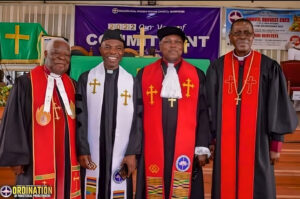
L-R; Very Rev. Japhet Yao Ledo (Moderator 1993-2000), Rev. Dr. Lawson Dzanku (Clerk of the GA), Rt. Rev. Dr. Bliss Divine Agbeko (Moderator of the GA), Very Rev. Francis Amenu (Moderator 2009 – 2014)
Wolf subsequently moved to the Christiansburg Castle, Osu to seek counsel with the Basel Missionaries who advised that he turn to the Eweland. Fortune came his way as a result of Kwadzo Dei Tutu Yao II, King of Peki invitation through his son Nyangamagu, Rev. Lorenz Wolf arrived in Peki on 14th November 1847. That day marked the birth of the Church (EPCG). He preached the first Sermon based on Psalm 22:22.
In April 1851, Lorenz Wolf died on his way home. In January 1852, Quinuius took over the work of Wolf. Between 1853 and 1855, fresh missionary work was started from Keta by Daeuble and Plessing. On 26th January 1856, Brutschin and Steinmann arrived at Adaklu-Waya and opened a new Mission Station. In 1857, Anyako Station was established. In 1859, the Mission Station at Ho was established. In 1864, a Mission Seminary was opened at Ho.
The Asante War in Eweland in 1869 disturbed the missionary work. All the Missionaries left for home, leaving the young Church as an ‘orphan’.
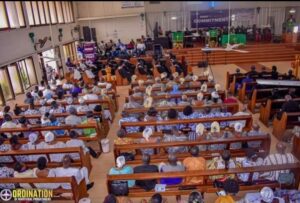 On 29th October 1880, a native of Peki, Mr. Yohanes Ababio, was baptized as a first convert at Keta. In 1882, Rudolf Mallet was ordained as the first African Minister. In 1884, a new School was re-opened at Peki-Blengo by Stephen Kwami.
On 29th October 1880, a native of Peki, Mr. Yohanes Ababio, was baptized as a first convert at Keta. In 1882, Rudolf Mallet was ordained as the first African Minister. In 1884, a new School was re-opened at Peki-Blengo by Stephen Kwami.
In 1886, two North German Bremen Missionaries, Reverends Mathew Seeger and Jacob Spieth paid a visit to Amedzofe. In February 1894, Rev. M. Seeger opened a Seminary in a small room in the town and appointed the capable Swiss, Rev. Ernest Burgi, as its Principal. In 1888, Rev. Peter Hall, a Basel Missionary, brought Christianity to Nkonya-Ntsumuru. In 1903, some Basel Mission Stations such as Anfoega, Kpando, Alavanyo, Jasikan, and Worawora were transferred to the Bremen Mission for geographical convenience from the Basel Mission.
In 1905, Rev. Herman Schosser settled at Akpafu-Todzi as the first Bremen Missionary.
By 1911, 34% of the population of Peki became Christians. The outbreak of World War I in 1914 disturbed missionary activities. Many of the Mission Stations were closed down.
In January 1916, the first publication of the Ewe Bible was brought to Keta. The significant effect of World War I on the Bremen Mission’s work was that Togoland was divided into two; one part was put under the English and the other under the French Governments as Mandatory Territories.
In 1921, Rev. Andreas Aku and Rev. R.S. Kwami succeeded E. Burgi who was old. They were responsible for Lome and outside Congregations. In 1922, the two Churches in the Gold Coast and Togoland held their first Joint Synod at Kpalime. Rev. Andreas Aku was elected as the first Moderator.
The Church celebrated her 75 years Jubilee at Blengo-Peki in 1922. In September 1923, the first Synod was held in Ho by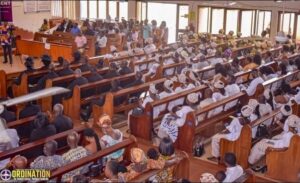 the British Zone of the Church. This marked the establishment of the Ewe Church. In the same year (1923), a 5-member Synod Committee, consisting of three African Pastors and two German Missionaries was set up. Their names were: Revds David Bensah (the Moderator); R.S. Kwami (the Synod Clerk); John Binder; W.M. Beveridge and Schroeder.
the British Zone of the Church. This marked the establishment of the Ewe Church. In the same year (1923), a 5-member Synod Committee, consisting of three African Pastors and two German Missionaries was set up. Their names were: Revds David Bensah (the Moderator); R.S. Kwami (the Synod Clerk); John Binder; W.M. Beveridge and Schroeder.
After World War I, the Scottish Mission took over the Mission work of the Bremen Mission. Mr. Wilkie and Beveridge were very instrumental in the administration of the Churches in the Eweland of the Gold Coast.
In 1924, the new “Hadzigbale” (Hymn Book), with 481 Hymns, arrived to replace the earlier one compiled by Missionary John Binder, published in 1867.
Between 1925 and 1926, Missionaries from the North German Missionary Society arrived again; this time, in the British Mandated Togoland (now Ghana).
In 1926, the Church assumed the new name “Ewe” Presbyterian Church. The Bremen Mission was permitted to operate as a Society in the Gold Coast and British Togoland (Volta Region). Rev. Paul Wiegrabe became one of the most remarkable Missionaries in Eweland. He wrote many books; e.g. “Ewe Kristo Hame Nutinya”.
Professor D. Westermann introduced the letters of the Ewe alphabets into Schools and Churches. In 1928, the revision of the Liturgy was completed and published in 1930. The whole Bible (Old Testament and New Testament) was revised by Prof. D. Westermann and G. Daeuble and published in 1931.
In 1932, Mrs. Funke, the wife of Rev. A. Funke, who was staying in Amedzofe, together with Rev. & Mrs. R. S. Kwami, organized some women to study the Bible and to learn and pray effectively. This Group later became the Women’s Bible Class.
In 1933, the “Hamedodo” (Church Constitution) was revised.
On 11th November 1939, Rev. Eric Voehringer and Rev. R.S.Kwami, with permission from the Chief of Amedzofe, erected a metal cross on the summit of the Gemi Mountain to commemorate the 50th Jubilee of the E. P. Church, which was celebrated at Amedzofe. Rev. T. K. Afenyo was ordained into the Ministry.
On 12th May 1940, the first Church Choir of the EP Church Ghana was inaugurated at Keta. In 1942, the Rev. G. K. Ampofo became the first E. P. Church Reverend Minister to be commissioned into the Ghana (Gold Coast) Army as a Chaplain. On 11th October 1945, Rev. R. S. Kwami, the first Synod Clerk, who worked from 1923-1945, died. In 1946, the first Teacher Training College was opened by the Church at Amedzofe, with Mr. W. M. Beveridge, a Scottish missionary, as the first Principal.
In 1947, the Evangelical Presbyterian Church celebrated its 100 years of establishment at Peki. In 1950, Mawuli School, the first Secondary School of the Church, was opened with boys to begin with. Rev. Walter Trost was the first Headmaster. In 1952, the E.P. Church Hospital at Worawora was started. In the same year, the E.P. Church Seminary was moved from Ho to Peki.
Rev. F.R. Ametowobla, who was elected Synod Clerk in 1950, ceased to be Synod Clerk in 1954 and became a Parliamentarian. In 1954, a Synod was held at Kpedze where the name Ewe Presbyterian Church was changed to Evangelical Presbyterian Church.
In 1957, the Hospital at Adidome and Worawora became operative through the assistance of the Evangelical and Reformed Church, U.S.A. (now United Church of Christ).
In 1959, the E.P. Church Book Depot Ltd. (now Bookshop), was established. In that same year, Rev. Ian Strachan and his wife, Moyer, arrived from the Church of Scotland as a Youth Worker and it was in that same year that the Christian Youth Builders (CYB) began to develop.
A Secondary School at Hohoe was established on 28th September 1961 with Rev. Ian Strachan as the first Headmaster. In 1962, Bimbilla Teacher Training College was established by the Church with Mr. Adolph Adzanku as the first Principal.
In 1963, Rev. E. Y. Tawiah was appointed and trained in the U. S. A. as a Stewardship Secretary. In 1965, the E. P. Church Press was established in Ho. In 1968, Rev. Von Stuckrad started the E. P. Church Social Services Center in Ho. In 1969, Rev. Klaus Winter established Wapuli Health Center, in the Northern Region.
On 24th August 1969, the Rev. E. L. Nabicha, the first indigenous Reverend Minister from the Upper-Northern Presbytery, was ordained into the Holy Ministry of the Lord.
In 1978, the E.P. Trades Training Centre was established at Alavanyo to train the Youth in employable skills. It was started by the Rev. I. D. K. Aflakpui, the then Youth Worker, and his assistant, the Rev. V. M. Y. Dose.
On 1st September 1979, Rev. Joyce Kofi Kodade was appointed the first Religious Education Organizer for E. P. Schools.
In 1980, the first two women Ministers, Revds. Bertha Ayele Dovlo (Mrs.) and Felicia Anyagli-Mensah (Mrs.), were ordained.
In 1981, the idea of establishing the “Dumedefo”, an Ambassador Choir of the Church, was mooted and formed by the Very Rev. Prof. N. K. Dzobo. It was handled by Mr. Walter Blege and Mr. Robert Ndo with the Rev. I. D. K. Aflakpui as its Chaplain.
In 1983, Mawuko Girls’ Secondary School was established in Ho through the instrumentality of the Very Rev. Prof. N. K. Dzobo and Mrs. Vida Dzobo. Miss Margaret Nutsugah was the first Headmistress.
Between 1981 and 1989, Bible Study and Prayer Fellowship was established within the Church.
In 1986, Saboba Secondary School was established in the Upper-Northern Presbytery of the Church under the Moderatorship of the Very Rev. Prof. N. K. Dzobo. Mr. P. G. Debley was the first Headmaster.
In 1991, a section of the E. P. Church members “broke” away as dissenters from the mother-Church, but called themselves “E. P. Church of Ghana” with their Headquarters in Accra. The breakaway Group later changed its name to “Global Evangelical Church”.
In 1997, the Church celebrated her 150 years’ Jubilee at Peki with great success.
In 1998, the E. P. Church Agricultural Secondary School was established at Tatale in the Northern Region of Ghana under the Moderatorship of the Very Rev. J. Y. Ledo. The first Headmaster was Mr. Frank Aflakpui.
In 2001, the Evangelical Presbyterian Church London Branch was officially inaugurated at East Dulwich, London.
On 26th August 2006, Presbyter Lydia Aku Adadjawah was elected as the first female Presbyter Executive of the E. P. Church in Ho.
On Sunday, 17th February 2008, the E. P. University College was officially opened by the Very Rev. Dr. L. K. Buama with the first batch of Students numbering 54. It has two campuses – one in Ho and another at Peki called the Green Hills Campus. The first President was Mr. Walter Blege. The Registrar was Mr. S. W. K. Buami and the Late Dr. G. K. Agama was the Chairman of the Governing Council.
On Tuesday, 3rd November 2009, the Church received a United Nations Award for her leading role in Climate Change. The Award was presented to the Moderator, the Rt. Rev. Francis Amenu, by His Excellency, Mr. Ban Ki-Moon, the UN Secretary-General, who was assisted by His Royal Highness Prince Philip, at Windsor Castle, United Kingdom (U. K.).
In June 2010, the Rev. Dr. Setri Nyomi, a Minister of the E. P. Church, who was at the time the first African General Secretary of WARC, was elected the first General Secretary of the World Communion of Reformed Churches (WCRC).
On Saturday, 21st August 2010, the Evangelical Presbyterian Church, during her 2nd General Assembly held at Peki, promulgated the General Assembly Constitution.
The life and witness of the EPCG are defined by its vision; to be a DYNAMIC AGENT of God, leading in the Great Commission to bring light to where there is darkness and transforming our world into the likeness of Christ.
The Church currently has 16 Presbyteries, 216 Districts, and 1053 Congregations worldwide. On 30th October 1929, The Evangelical Presbyterian Church, Ghana, together with the now Methodist Church of Ghana, Presbyterian Church of Ghana, the Anglican Church, and the A.M.E. Zion Church founded The Christian Council of Ghana (CCG). The Church is also a member of the World Council of Churches, the World Communion of Reformed Churches (WCRC), and the All-African Conference of Churches.
In living its mission to propagate the Gospel holistically by empowering its members Spiritually, Materially, and Socio-Culturally, to be effective agents of the Great Commission, the Evangelical Presbyterian Church, Ghana operates a University College at Ho, A Theological Seminary at Peki, Six (6) Senior High Schools, Two (2) Colleges Of Education, Two (2) Technical/Vocational Institutes, 157 Junior High Schools, 549 Primary Schools in addition to Nine (9) Health institutions across the country.
The Church is currently headed by Rt. Rev. Dr. Lt. Col. Bliss Divine Agbeko (Rtd) as the moderator of the General Assembly, Rev. Dr. Lawson Dzanku as the Clerk of the General Assembly, and Presbyter Charles Sitsofe Sakyi as the Presbyter Executive of the General Assembly.

